Health & Medicine
-
 Health & Medicine
Health & MedicineSimple steps can offer health benefits
Studies find that even small changes in eating habits and movement can lower risk of heart disease.
By Laura Beil -
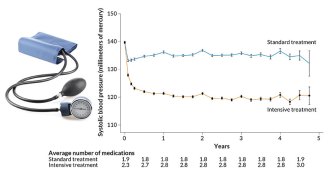 Health & Medicine
Health & MedicineDropping blood pressure to 120 lowers heart woes, data confirm
Aggressive treatment to lower systolic blood pressure to 120 reduces risk of heart attack, but causes some side effects.
By Meghan Rosen -
 Health & Medicine
Health & MedicineAntibodies to fight Alzheimer’s may have unexpected consequences
Alzheimer’s-targeted antibodies make neurons misbehave even more, a study of mice shows.
-
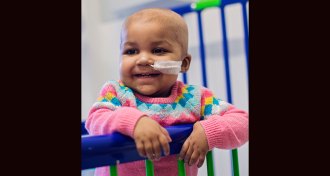 Life
LifeGene editing helps a baby battle cancer
Doctors used molecular scalpels to tweak T cells to target leukemia but not harm the patient.
-
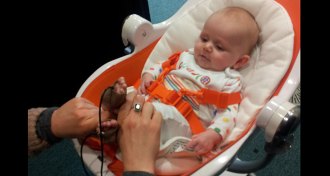 Health & Medicine
Health & MedicineYoung babies live in a world unto themselves
Young babies don’t let information from the outside throw off their touch perception, a finding that has clues for how babies experience the world.
-
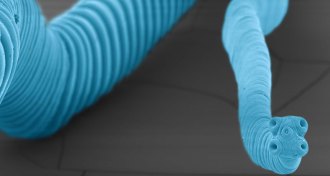 Health & Medicine
Health & MedicineParasite gives a man cancer
Tapeworms can kick parasitism up a notch to become cancer, a case in Colombia shows.
-
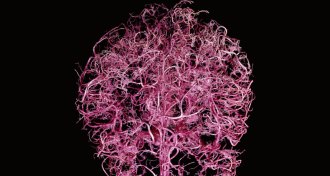 Neuroscience
NeuroscienceBlood exerts a powerful influence on the brain
Instead of just responding to the energy needs of neurons, the blood can have a direct and powerful influence on the brain.
-
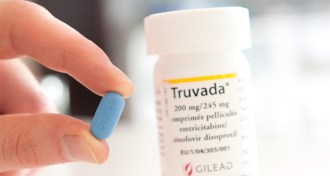 Health & Medicine
Health & MedicineDaily drug shown effective in preventing HIV infections
After a history of controversy, preexposure prophylaxis has been demonstrated to work for HIV prevention.
By Laura Beil -
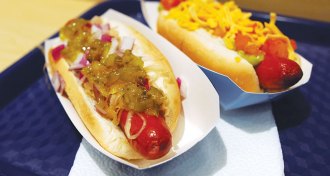 Health & Medicine
Health & MedicineEating meat officially raises cancer risk
Eating processed meats like bacon, ham and sausage causes cancer, says the World Health Organization.
-
 Neuroscience
NeuroscienceSigns of Alzheimer’s seen in young brain’s GPS cells
Signs of Alzheimer’s can show up in the brain’s compass decades before symptoms strike.
By Meghan Rosen -
 Health & Medicine
Health & MedicineHollywood-made science documentary series comes to TV
Breakthrough series gives a closer look at scientists at work.
-
 Neuroscience
NeuroscienceSigns of Huntington’s show up in the brain in childhood
Hints of Huntington’s disease show up in the brain long before symptoms do.